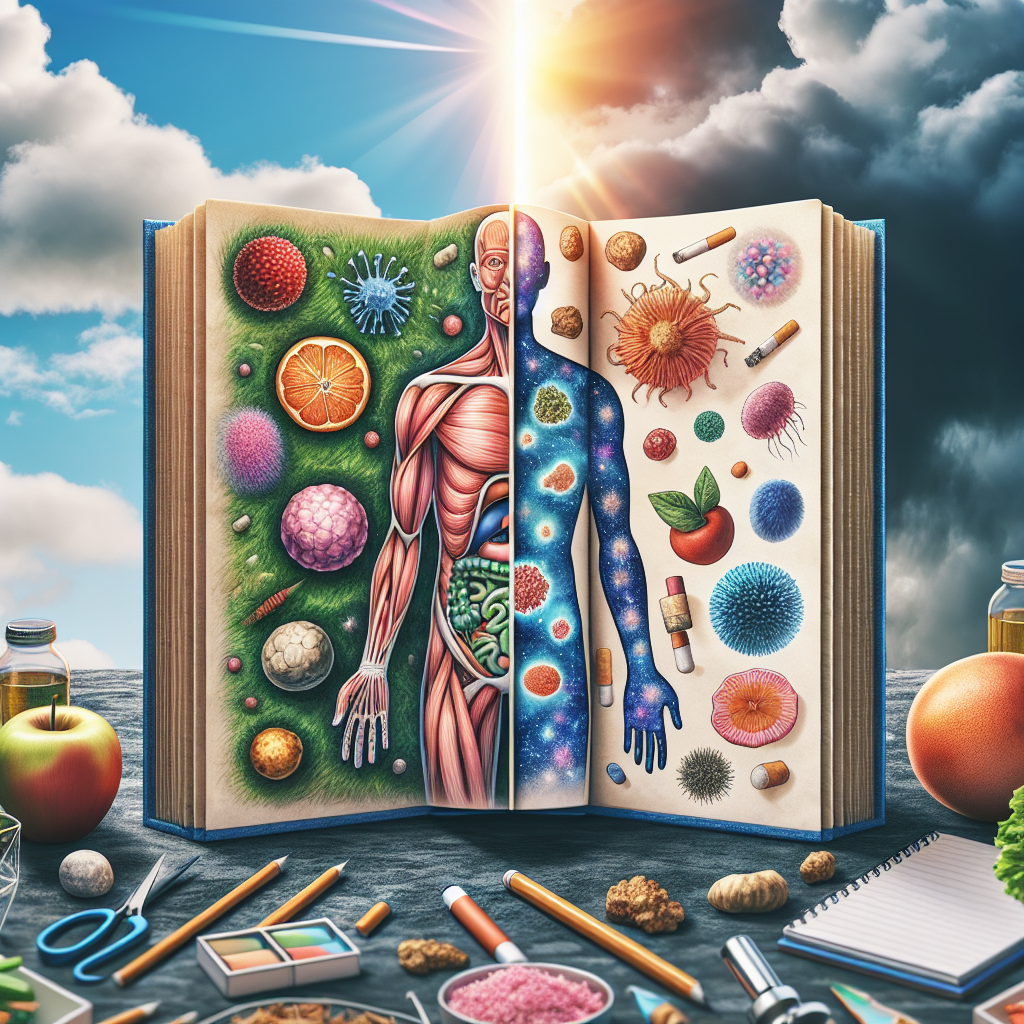Cancer is a term used to describe a group of diseases that can affect any part of the body, and which result from the uncontrolled growth and spread of abnormal cells. The development of cancer is a complex process that can be influenced by a variety of factors, both genetic and environmental. While it is not always possible to pinpoint the exact cause of cancer in a particular individual, there are some common factors that are known to increase the risk of developing the disease. In this article, we will explore some of the most common causes of cancer, as well as the role that genetics, lifestyle choices, and environmental factors play in its development.
Genetics:
One of the primary factors that can influence an individual’s risk of developing cancer is their genetic makeup. Some types of cancer are known to run in families, suggesting that there may be a genetic component to the disease. For example, mutations in certain genes, such as BRCA1 and BRCA2, have been linked to an increased risk of breast and ovarian cancer. Inherited genetic syndromes, such as Lynch syndrome and Li-Fraumeni syndrome, can also increase the risk of developing certain types of cancer at a young age.
Lifestyle Choices:
Another major factor that can influence the risk of developing cancer is the lifestyle choices that an individual makes. Smoking, for example, is one of the leading causes of cancer worldwide, and is responsible for a significant proportion of all cancer-related deaths. Other lifestyle factors, such as a poor diet, lack of physical activity, excessive alcohol consumption, and exposure to harmful chemicals and radiation, can also increase the risk of developing cancer.
Environmental Factors:
In addition to genetics and lifestyle choices, environmental factors can also play a role in the development of cancer. Exposure to certain substances, such as asbestos, radon, and benzene, can increase the risk of developing certain types of cancer. Additionally, pollution, radiation, and ultraviolet (UV) radiation from the sun can also increase the risk of developing cancer.
Common Causes of Cancer:
Now that we have discussed some of the factors that can influence an individual’s risk of developing cancer, let’s take a closer look at some of the most common causes of the disease:
1. Tobacco Use:
Smoking is one of the leading causes of cancer worldwide. Tobacco smoke contains over 7,000 chemicals, many of which are known to cause cancer. Inhaling these chemicals can damage the DNA in cells, leading to the uncontrolled growth and spread of abnormal cells. Smoking has been linked to a variety of cancers, including lung, throat, and mouth cancer.
2. Poor Diet:
A poor diet that is high in processed foods, red meat, and saturated fats, and low in fruits, vegetables, and whole grains, can increase the risk of developing cancer. A diet that is low in fiber, antioxidants, and other nutrients can weaken the immune system and make it easier for cancer cells to grow and spread.
3. Lack of Physical Activity:
A sedentary lifestyle can also increase the risk of developing cancer. Regular physical activity has been shown to reduce the risk of several types of cancer, including breast, colon, and prostate cancer. Exercise helps to maintain a healthy weight, boost the immune system, and reduce inflammation, all of which can help to lower the risk of cancer.
4. Excessive Alcohol Consumption:
Excessive alcohol consumption has been linked to an increased risk of developing certain types of cancer, including mouth, throat, and liver cancer. Alcohol is thought to increase the risk of cancer by damaging the DNA in cells and interfering with the body’s ability to repair damaged cells.
5. UV Radiation:
Exposure to UV radiation from the sun or tanning beds can increase the risk of developing skin cancer, including melanoma, the most serious form of skin cancer. UV radiation can damage the DNA in skin cells and cause mutations that can lead to the development of cancer.
FAQs:
Q: Can cancer be prevented?
A: While it is not always possible to prevent cancer, there are several steps that individuals can take to reduce their risk of developing the disease. These include maintaining a healthy weight, eating a balanced diet, exercising regularly, avoiding tobacco and excessive alcohol consumption, and protecting the skin from UV radiation.
Q: What are some early signs of cancer?
A: Some common early signs of cancer include unexplained weight loss, persistent fatigue, lumps or swelling in the body, changes in bowel or bladder habits, persistent cough or hoarseness, and unexplained pain. It is important to see a doctor if you experience any of these symptoms, as early detection of cancer can improve the chances of successful treatment.
Q: How is cancer diagnosed?
A: Cancer is typically diagnosed through a combination of physical exams, imaging tests, lab tests, and biopsies. If cancer is suspected, a doctor may order a series of tests to confirm the diagnosis and determine the type and stage of cancer. Treatment options will vary depending on the type and stage of cancer.
In conclusion, cancer is a complex disease that can be influenced by a variety of factors, including genetics, lifestyle choices, and environmental factors. While it is not always possible to prevent cancer, individuals can take steps to reduce their risk of developing the disease by maintaining a healthy lifestyle and avoiding known risk factors. Early detection and treatment are key to improving the chances of successful outcomes for individuals diagnosed with cancer. If you have any concerns about your risk of developing cancer or are experiencing any symptoms of the disease, it is important to speak with a healthcare provider for further evaluation and guidance.
